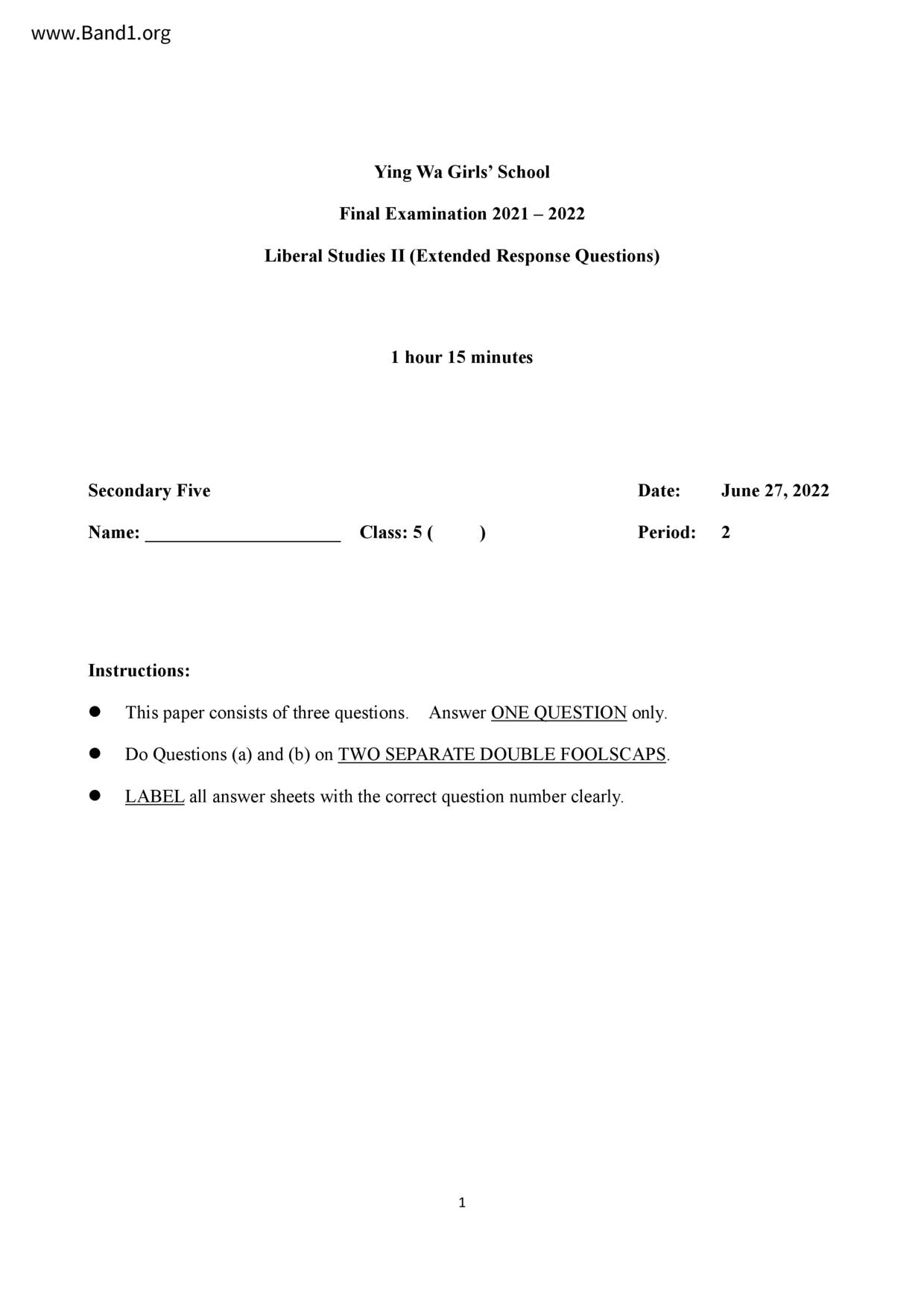香港中五試卷
編號:
7094
學校區域:
香港港島中西區
學校:
英華x女學校
(YING WA GIRLS' SCHOOL)
年級:
中五 (F5)
科目:
(Others)
年份:
2021-2022
學期:
2
卷種:
考試
檔案格式:
pdf
頁數:
27
檔名:
english Final_Exam_Paper_II_2122
▼ 圖片只作預覽, 如欲下載整份卷, 請按「免費成為會員」 ▼
英華x女學校試卷
 ▲ 圖片只作預覽, 如欲下載整份卷, 請按「免費成為會員」 ▲
▲ 圖片只作預覽, 如欲下載整份卷, 請按「免費成為會員」 ▲香港中五試卷 PDF
下載試卷只限會員尊享